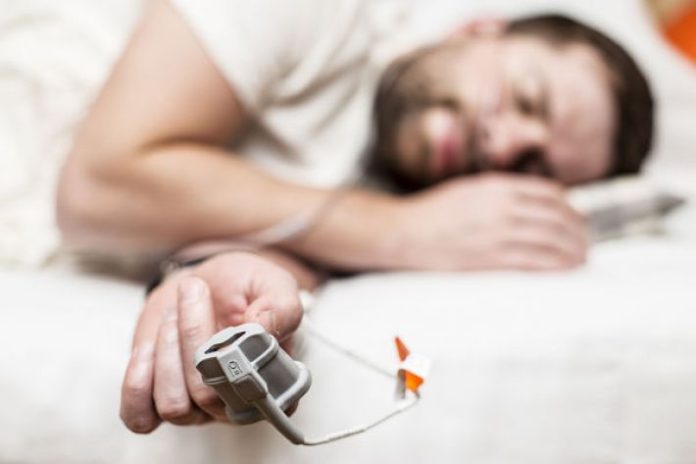Hypothyroidism, a condition where the thyroid gland does not produce enough thyroid hormones, affects millions of individuals worldwide. While many people are aware of the common symptoms associated with hypothyroidism, such as fatigue, weight gain, and cold intolerance, fewer may recognize that shortness of breath, particularly during exertion, can also be a significant symptom of long-term hypothyroidism. This article aims to explore the connection between hypothyroidism and shortness of breath, shedding light on the mechanisms involved and offering insights into management and treatment options.
Understanding Hypothyroidism
Hypothyroidism occurs when the thyroid gland fails to produce sufficient levels of hormones, primarily thyroxine (T4) and triiodothyronine (T3). These hormones play a crucial role in regulating various bodily functions, including metabolism, energy production, and even cardiovascular health. The condition can be caused by various factors, including autoimmune diseases (such as Hashimoto’s thyroiditis), surgical removal of the thyroid, radiation therapy, certain medications, or iodine deficiency.
Common Symptoms of Hypothyroidism
Individuals with hypothyroidism may experience a range of symptoms, which can vary in severity. Common symptoms include:
- Fatigue and lethargy
- Weight gain
- Cold intolerance
- Dry skin and hair
- Depression
- Constipation
- Muscle weakness
- Slow heart rate
Shortness of Breath: A Hidden Symptom
Shortness of breath, also known as dyspnea, is characterized by a feeling of not getting enough air or difficulty breathing. While it can occur due to various conditions, it is essential to explore how long-term hypothyroidism may contribute to this symptom.
The Mechanisms Behind Shortness of Breath
- Metabolic Dysfunction: Thyroid hormones are essential for maintaining a healthy metabolism. In hypothyroidism, metabolism slows down, leading to reduced oxygen utilization by tissues. This can result in feelings of breathlessness during exertion, as the body struggles to meet its oxygen demands.
- Cardiovascular Effects: Hypothyroidism can affect heart function. It may lead to bradycardia (slow heart rate) and increased systemic vascular resistance, which can compromise cardiac output. This decreased cardiac efficiency may result in inadequate oxygen delivery to muscles during physical activity, contributing to shortness of breath.
- Muscle Weakness and Fatigue: Individuals with hypothyroidism often experience muscle weakness and generalized fatigue. This can affect the respiratory muscles, leading to a decreased ability to take deep breaths during exertion, further contributing to the sensation of breathlessness.
- Fluid Retention: Some individuals with hypothyroidism may experience fluid retention, which can lead to pulmonary edema (fluid accumulation in the lungs). This condition can cause difficulty in breathing, particularly when engaging in physical activities.
Recognizing the Link Between Hypothyroidism and Shortness of Breath
It is crucial for individuals with a history of hypothyroidism to recognize that shortness of breath during exertion may indicate a need for further evaluation. If you are experiencing this symptom, consider the following steps:
- Monitor Your Symptoms: Keep a detailed record of your shortness of breath episodes, including their frequency, duration, and any associated activities or triggers.
- Consult Your Healthcare Provider: If you notice shortness of breath, especially if it is new or worsening, consult with your healthcare provider. They may recommend a comprehensive evaluation to determine the underlying cause.
- Thyroid Function Tests: Your healthcare provider may perform thyroid function tests to assess your hormone levels. These tests typically include measuring levels of thyroid-stimulating hormone (TSH) and free T4. Abnormal results may indicate that your hypothyroidism is not adequately managed.
- Consider Other Causes: While hypothyroidism may contribute to shortness of breath, it is essential to rule out other potential causes, such as lung diseases, heart conditions, or anxiety disorders.
Treatment Options
Managing hypothyroidism typically involves hormone replacement therapy, which aims to restore normal thyroid hormone levels. This treatment can help alleviate various symptoms, including shortness of breath. Here are some common approaches:
- Thyroid Hormone Replacement: Levothyroxine is a synthetic form of the thyroid hormone T4 commonly prescribed for hypothyroidism. It is crucial to take this medication as directed and have regular follow-up appointments to monitor hormone levels.
- Lifestyle Modifications: Adopting a healthy lifestyle can support overall well-being and improve respiratory function. Engaging in regular physical activity, maintaining a balanced diet, and managing stress can contribute to better health outcomes.
- Monitoring Comorbid Conditions: Individuals with hypothyroidism may have other health issues, such as cardiovascular disease or respiratory disorders. Addressing these conditions can improve overall respiratory function and reduce symptoms.
Shortness of breath on exertion can indeed be a symptom of long-term hypothyroidism, primarily due to the metabolic, cardiovascular, and muscular effects of insufficient thyroid hormone levels. Recognizing the connection between hypothyroidism and this symptom is crucial for timely evaluation and management. If you experience shortness of breath or any other concerning symptoms, consult with your healthcare provider for a comprehensive assessment and appropriate treatment options. By managing hypothyroidism effectively, individuals can improve their quality of life and reduce the impact of symptoms such as shortness of breath.















